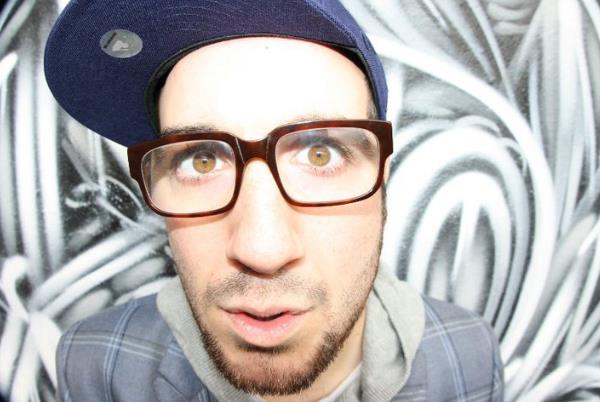
The British rap scene is a strange and exciting place in 2013. Though leading figures may be sleeping, hip hop is slowly being resuscitated by a generation of hungry and passionate MCs from all over the country, and the nature of this revival is striking.
Previously taboo subjects are increasingly prevalent in the lyrics of the UK's biggest MCs, and, most interestingly, political and socially conscious themes are at the heart of this rap agenda. This wave has embraced the same culture of resistance that saw the likes of Public Enemy cause such a stir a quarter of a century ago.
MCs and broadcasters have been heard to refer to 2001-2006 as the “golden age” of UK hip hop, a period that saw the scene energised by the likes of Jehst, Klashnekoff and crews such as Task Force, while the rise and “fall” of grime also played out within a similar timeframe. Even if the word “pop” crops up as a suffix, Wiley, Tinie Tempah and Dizzee Rascal remain fixtures on daytime Radio 1 and it is not hard to see why they're regarded as the voices of urban music in the UK – even the Queen's a fan apparently.
Now things are bubbling up again, with the scene becoming a vehicle for artists seeking social and political change. Before any real blows can be struck, though, a few worldviews need to change, on both sides of the mic. The ‘establishment’ will always attempt to sanitise what is at its core, anti-establishment. That’s a tale as old as time and in recent years there have been a number of occasions when old ideas threw up roadblocks to MCs with something new to say.
In 2011, Lowkey's sophomore LP 'Soundtrack To The Struggle' troubled the UK album charts, and also found success in America, Canada and Australia. The album is an angry, passionate work that tackles misogyny, war, racism and class issues over the course of an hour. Despite this, and millions of hits for promos on YouTube, the album received little to no mainstream coverage.
Despite this, politically motivated hip hop still makes up a large portion of the underground movement in the UK. M9 has been breaking new ground with his technical lyricism and oppressive noir sound, but the bigger names are even more politically active. The Peoples Army, who describe themselves as a movement of “like-minded thinkers” want to raise awareness of issues through their rhymes – the key slogan in all this being “knowledge is power”. Heads as diverse as Akala, George the Poet, Mic Righteous, Maverick Sabre, Logic and Lowkey himself are on board.
The biggest influences on these MCs and producers remain the pioneers and legends of hip hop, but they are also drawing on elements of British music and culture as building blocks. Last Resort, a highly respected producer in this crew, acknowledged the influence of the greats both lyrically and culturally but was also quick to highlight Britain's great musical heritage. “All our great musical movements have always been an original take on things,” he said. He’s influenced by punk, drum and bass, dubstep, grime and trip hop. The message: we can do our own thing.
Also becoming an important part of the UK scene is battle rap - led by the popular, influential Don’t Flop. Last Resort fondly identifies with Don't Flop saying that, “there is something really special going on there”. As well as the development in format, it is also quite staggering how many boundaries have been broken down in the UK battle scene alone.
Ideas of class have been challenged with a new brand of “posh rapper” emerging, particularly in the form of Shuffle T and Marlo, who went viral with their bad bars battle. The league also has a selection of female battlers, such as Dekay, and we also recently saw the first case of a rap battler coming out as bisexual.
Adam Felman, also known as Mos Prob, recently suggested on a Don't Flop blog that “viewing hip hop as a craft rather than a culture” changes the terms of participation dramatically. After all, middle class kids can still support and identify with “the struggle” without being part of it.
When we caught up with him, Felman was keen to stress that the broad spectrum in terms of class, race and sexual orientation has seen Don't Flop become particularly “progressive in terms of writing”. “OTT racial stereotypes, gay jokes and misogynistic threats have become ridiculous to the point of parody,” he said. “It is the 21st Century and we should all be past that.”
But is it like this across the board? “The problem lies in certain MCs' ignorance with regards to issues outside of their comfort zone,” Felman said. “There's some really playgroundy stuff. I'd say you should leave your stuff in the ring.”
Today's movement of UK hip hop artists represents a counter-culture to not only the mainstream, but to what we are conditioned to think of as rap music. As this movement continues to yield talented artists with their own voices, can we really afford to ignore them any longer?
NOTE FROM THE EDITOR
We don't run any advertising! Our editorial content is solely funded by lovely people like yourself using Stereoboard's listings when buying tickets for live events. To keep supporting us, next time you're looking for concert, festival, sport or theatre tickets, please search for "Stereoboard". It costs you nothing, you may find a better price than the usual outlets, and save yourself from waiting in an endless queue on Friday mornings as we list ALL available sellers!
Let Us Know Your Thoughts
Related News |